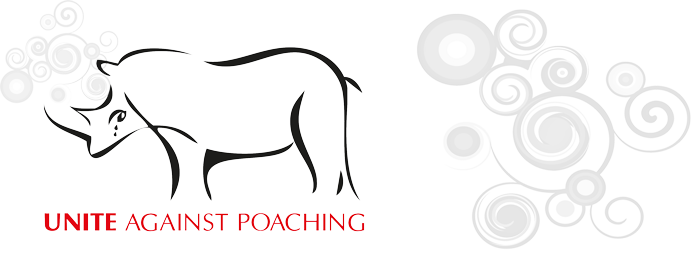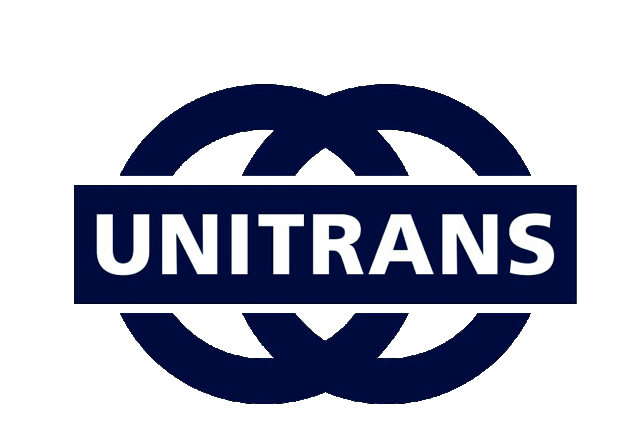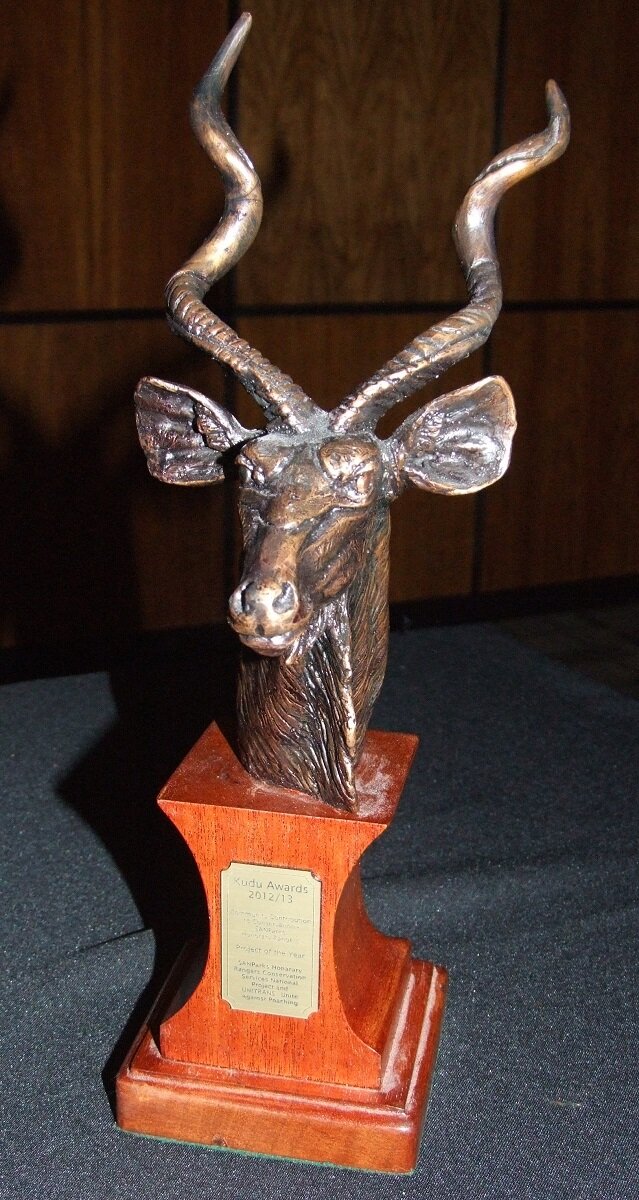USA announces indictment of 2 SA suspected rhino criminals
Oct 24 2014- Details
-
U.S. authorities today announced the indictment of the alleged kingpin of a South African rhino poaching and trafficking syndicate, Dawie Groenewald, and his brother, Janneman, and their company Out of Africa Adventurous Safaris on multiple charges, including conspiracy, money laundering, and wildlife crime.
The Groenewald brothers own and operate Out of Africa Adventurous Safaris, an outfitter that organizes and conducts trips in private hunting areas in Botswana, Tanzania, Zimbabwe, and South Africa, including at their 10,600-acre (4,300-hectare) game farm, Prachtig, about 40 miles (60 kilometers) south of the town of Musina, in South Africa's Limpopo Province.
U.S. authorities will be seeking to extradite the brothers from South Africa
Fundisile Mketeni appointed as new CEO of SANParks
Oct 24 2014- Details
-
The Department of Environmental Affairs has congratulated Fundisile Mketeni on his appointment as Chief Executive Officer of South African National Parks (SANParks). Cabinet approved the appointment of Mr Mketeni as the CEO of SANParks on a five year contract at its meeting on 22 October 2014.
Mr Mketeni has extensive experience in conservation management having been a conservation career professional. He has spearheaded the country's biodiversity agenda for the last 10 years as the Deputy Director General responsible for Biodiversity and Conservation in the Department of Environmental Affairs.
“The Department would like to thank Mr Mketeni for his excellent service and dedication to the conservation of our rich biological diversity,” said the Department. “We are looking forward to working with Mr Mketeni as he moves SANParks into the future. In the face of the ongoing challenges of rhino poaching, we have faith in Mr Mketeni’s abilities to address the scourge head-on.”
“I welcome the confidence placed on me by the SANParks Board, the Minister and the country as a whole,” said Mr Mketeni. “I am looking forward to serving the country and committed to continuing with the good work and also to positioning the organisation as a lead agent in conservation nationally, regionally and globally.”

Read more: Fundisile Mketeni appointed as new CEO of SANParks
CITES and confiscated elephant ivory and rhino horn – to destroy or not destroy?
Oct 21 2014- Details
-
Over the past 24 months we have seen a number of countries, including Belgium, Chad, China, Hong Kong SAR, China, Czech Republic, Gabon, France, Philippines, and the USA, destroy stockpiles of illegally traded elephant ivory and rhino horn that have been seized and confiscated.
I have been invited by national CITES authorities to witness several of these events and was able to accept the invitation on three occasions, namely for events held in China, in Dongguan and Hong Kong SAR, and most recently one at the Dvůr Králové Zoo, Czech Republic. My statements made at these events are all publicly available.
These events, and on occasion my personal participation in them, attract a significant amount of commentary both in favour of, and against, destroying confiscated elephant ivory and rhino horn. Two examples of comments posted on our after the recent Czech Republic event to destroy rhino horn illustrate the point:
- This is the most stupid event John Scanlon has been involved in…. obviously he is being led by others outside of CITES…
- Great action, thank all for doing this very much! The world need more action like this!

Burning of confiscated rhino horn at the Dvůr Králové Zoo, Czech Republic on 21 September 2014
So where do I, as Secretary-General, stand on the issue of whether to destroy or not to destroy confiscated elephant ivory and rhino horn? The starting point for the Secretariat in considering any CITES issue is the Convention text and the Decisions and Resolutions adopted by the Parties to CITES. They bind the CITES Secretariat, including myself, and we adhere strictly to them. We are also mandated (under Article XII of the Convention) to present suggestions to the Parties where we deem it necessary.
So, what then is the position of CITES Parties – the 180 States that have joined the Convention, on the issue of whether to destroy or not destroy confiscated elephant ivory and rhino horn?
Read more: CITES and confiscated elephant ivory and rhino horn – to destroy or not destroy?
14 poaching suspects arrested in one weekend
Oct 20 2014- Details
-
Kruger National Park Joint Operations
South African National Parks (SANParks) today announced three highly successful operations since Friday morning which led to the arrest of 14 suspected rhino poachers. This brings the total number of poaching suspects arrested in the Kruger National Park (KNP) this year to 113.
In a joint operation with members of the South African Police Services (SAPS) on the morning of Friday, 17th October, SANParks Rangers stopped a suspicious vehicle near Skukuza and arrested 5 suspects. A .375 hunting rifle, ammunition and poaching equipment as well as a vehicle were confiscated in the operation.
Later on during the afternoon of the same day, three other suspects were arrested in the Malelane area. During this operation SANParks Rangers, whilst on patrol in this section of the KNP, noticed a suspicious vehicle suspected to be involved in rhino poaching activities.
On Saturday, 18th October, in the Punda Maria section of the KNP, shortly after sunrise, a joint SANParks and SAPS deployment, supported by South African National Defence Force (SANDF) air wing, made contact with three suspected poachers. During the engagement, two of the suspects were seriously wounded and arrested while the third was arrested unharmed. The two wounded suspects were immediately taken to hospital where one later died of his injuries. The remaining wounded suspect is currently receiving treatment under police guard in hospital. A hunting rifle, ammunition and poaching equipment were also recovered at the scene. Further follow up investigations in all three operations are currently underway.

Demand for rhino horn drops by 33% in Vietnam
Oct 16 2014- Details
-
Posted in The Guardian - 16 October 2014
Efforts to curb the deadly trade in rhino horn appear to be gaining traction, with a poll finding that demand for the animal part in Vietnam has dropped by more than a third over the past year.
After a year-long public information campaign in Vietnam, only 2.6% of people in the Asian country now continue to buy and use rhino horn, a decrease of 38%.
Importantly, there has been a 25% decrease in the number of people who think rhino horn, which is made of the same material as fingernails and hair, has medicinal value. However, 38% of Vietnamese still think it can treat diseases such as cancer and rheumatism.
The polling was conducted by Nielsen for the Humane Society International (HSI) and the Vietnam Convention on International Trade in Endangered Species of Wild Fauna and Flora (Cites).
Vietnam is a key market for the trade of rhino horn, which prompted the awareness campaign to try to deter people from buying and consuming it.
Demand for rhino horn, primarily in China and south-east Asia, is putting severe pressure on rhino numbers in Africa. Last year a record 1,004 rhinos were illegally poached in South Africa, which has more rhinos than any other country. Another 821 have been killed this year.
This explosion in poaching is relatively recent – only 13 rhinos were poached in South Africa in 2007. A key reason for this is the soaring price of rhino horn: it can reach $100,000 a kilogram on the black market, rivalling the price of cocaine and gold.
More Articles...
- Unitrans VW Foxhounds success
- Global March for Elephant Rhino and Lion
- Bryanston Country Club Unites against Poaching
- Specialist training needed if Army is to contribute more to counter-poaching
- Rhino Stats sky rocket to 769






 Mitec Solutions
Mitec Solutions